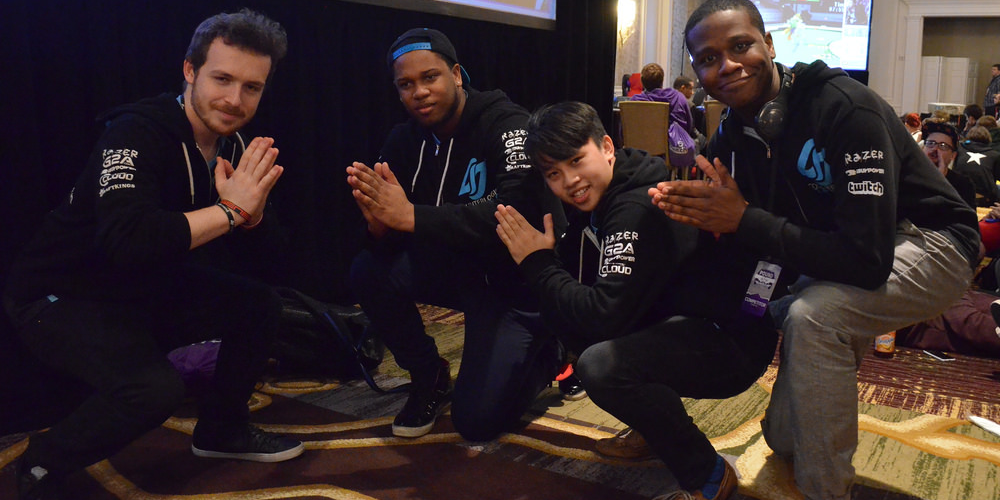I was struggling to find a blog topic for today but thanks to a friend (shoutouts to Ria!) I settled on talking about support networks. Ironically, Ria is a large part of my support network; she’s someone I can trust to both listen and give advice.
When dealing with new challenges it’s pretty simple to say that support networks are essential because it doesn’t seem like a good idea to tackle those things alone. However, thinking about why you include certain people, or how you choose them in the first place tends to be something that’s a bit more confusing.
I’ve seen the same therapist for the past five years. In those five years, I’ve built up the most important thing for a support network: context. This context comes from a long relationship, since I’m able to reference things that have happened years ago; she’s also able to use that context to see how I’ve developed as a person. It takes time to build that up, and it took me a long time to start trusting that she was using it effectively.
What I mean by that is a common problem that I see people needing to move past: the impostor syndrome of not believing people who want to support you. Your reasoning is that they don’t know the “real you,” and the good things they have to say about you aren’t based on reality. In the same vein, you might also believe the bad things you think about yourself because you believe you have a more “real” version of the evidence.
However, a big thing to realize is that in times of anxiety or depression, your brain is compromised. You aren’t totally broken (or maybe you are, depending on the severity), but at the same time your brain may be looking for things that fit its biases. It may want evidence of your negatives, because then it at least feels like it makes sense, or it provides you with a way out that seems easier than actual change: believing you’re a terrible person makes you feel that you deserve your unhappiness, and a terrible person should be punished.
Support networks come in by providing a mix of objective and subjective feedback. These people both can take situations you’re biased about and provide a more grounded set of advice, while also knowing the “real you” well enough to be able to quiet overthinking and prop up your confidence. A good support network helps to shut down the runaway brain chemistry that leads to drastic action, or no action at all; there’s still a lot of work to be done on your end, but sharing the workload helps.
That introduces another couple questions: how do you find a support network, and how do you act as a good support network to someone else?

Finding people to include in this is difficult, mostly because you both need to open yourself up to a person and be able to trust them implicitly. You need to be able to lift some of the burden off your shoulders, believe that you’re allowed to try to be better, and realize that you might not be able to do it yourself.
This is difficult for some people, especially if they have an idea of personal pride, or an idea of how they “should” be. It can take some time to break down those barriers, mostly because they tend to be learned and ingrained: for me, I thought that I had a plan I was sticking to, which only cracked after my therapist literally said “you need to trust me that I’m not going to lead you to get worse.”
That moment was a weird one for me, mostly because I wasn’t used to ceding power or control — to be out of control felt like adding more weakness to the negativity I already felt about myself. However, I firmly believe that your brain becomes ready to make a change when you see all other options exhausted, and you’re out of ideas yourself. You enable yourself to make change when the alternative is continuing with something you already know won’t work. That might be something that works for you, too, or you could be the kind of person that easily can switch gears.
Support can come from personal, romantic or professional relationships, but it can be hard to break past the barrier that keeps you worrying about social implications. Some people are truly not the right person to be able to help you in the way that you need, and you have to be ready to face that.
Some people may not be equipped, have the bandwidth, or even care for you in that way — this does not mean you don’t deserve help from people who do once you find them.
On the other side of the relationship, I’ve found myself in situations where friends or loved ones are coming to me because I’ve already “gone through” something they might be suffering from. To them, I’ve gone through to the other side and survived, and people reaching out to you might have the same idea. Being sensitive and empathetic is kind of the name of the game here, as the person might find their situation especially hopeless. Again, the evidence that they’re receiving is flawed, and you’re someone who can help them see otherwise.
It’s frustrating, because they have to be willing to change their situation; giving advice to someone who doesn’t feel like listening, or is satisfied by the attention can make you feel like your time is wasted. You can’t build a resentment to someone, because their journey is long and unique; something that might be easy for you may not be easy for them, and it’s perfectly okay to recognize moments where you are out of your depth.

It’s kind of a double-sided responsibility, I guess: the primary person looking for support needs to both trust the other person and actually implement their advice, while the person supporting needs to take that role seriously and not betray that trust.
This isn’t to say that the relationship needs to be overly formalized; it depends on the context of the problem, I guess. For instance, I have friends trying to work in esports/streaming/media who ask me for help on resumes, reading contracts, and making decisions. These people rely on me because of my experience, and because of that I rarely make definite choices for them; usually I’ll set up at least pros and cons, best-case and worst-case scenarios for options.
This is because despite context, you rarely know the whole story — this applies to everything, from mental health to relationships to careers. You’re enabling that other person to recognize what the healthy decision is for them, and you’re helping to build confidence that means less reliance on you in the long term.
You’re being their person to lean on, not their manager. You’re not living their life for them in the hopes of avoiding pain: you’re being real and honest with them about the possibilities of pain and how to best avoid or deal with it. You’re allowed to take breaks, and you’re allowed to let them know that you can’t help them at the drop of the hat. That’s fine.
That pain (of rejection, of change, of growth) is probably the reason why finding that relationship is the hardest: sometimes you don’t want to cause it (if you’re supporting) or open up about it (if you’re the one needing support). Having the altruism to want to help someone is a skill, and being able to trust your network to truly tell you if you’re being a problem is another.
It takes both sides to make it happen, and maybe all I’m saying with all this is to cherish those friendships, mentors and relationships when you’ve found something that truly works. Use your experiences to help other people who you see yourself in, and trust that they’ll pass on that goodwill when they’ve been able to grow from it themselves.
Stock images on this page come from Pexels and have a CC0 license.

Leave a Reply